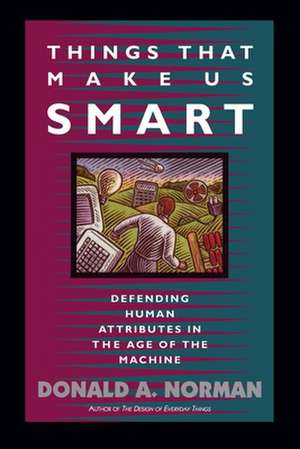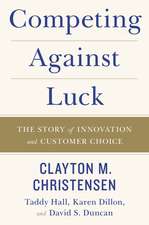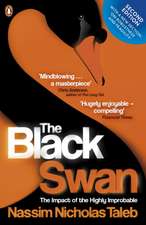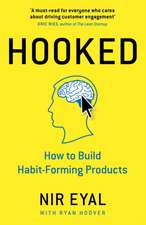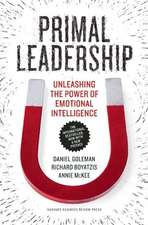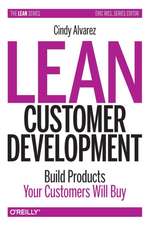Things That Make Us Smart: Defending Human Attributes In The Age Of The Machine
Autor Don Norman, Tamara Dunaeffen Limba Engleză Paperback – 20 apr 1994
In
Things
That
Make
Us
Smart,
Donald
A.
Norman
explores
the
complex
interaction
between
human
thought
and
the
technology
it
creates,
arguing
for
the
development
of
machines
that
fit
our
minds,
rather
than
minds
that
must
conform
to
the
machine.Humans
have
always
worked
with
objects
to
extend
our
cognitive
powers,
from
counting
on
our
fingers
to
designing
massive
supercomputers.
But
advanced
technology
does
more
than
merely
assist
with
thought
and
memory—the
machines
we
create
begin
to
shape
how
we
think
and,
at
times,
even
what
we
value.
Norman,
in
exploring
this
complex
relationship
between
humans
and
machines,
gives
us
the
first
steps
towards
demanding
a
person-centered
redesign
of
the
machines
that
surround
our
lives.
Librarul mai recomandă
Preț: 111.33 lei
Nou
Puncte Express: 167
Preț estimativ în valută:
21.31€ • 22.16$ • 17.59£
21.31€ • 22.16$ • 17.59£
Carte disponibilă
Livrare economică 22 martie-05 aprilie
Preluare comenzi: 021 569.72.76
Specificații
ISBN-13: 9780201626957
ISBN-10: 0201626950
Pagini: 304
Dimensiuni: 156 x 232 x 22 mm
Greutate: 0.36 kg
Ediția:Revised
Editura: BASIC BOOKS
Colecția Basic Books
ISBN-10: 0201626950
Pagini: 304
Dimensiuni: 156 x 232 x 22 mm
Greutate: 0.36 kg
Ediția:Revised
Editura: BASIC BOOKS
Colecția Basic Books
Notă biografică
Donald A. Norman is Professor of Computer Science at Northwestern University, a former “Apple Fellow,” and a partner in the Nielsen Norman Group Consulting Firm, which consults with corporations on design. He is the author of a number of books on design, including Emotional Design and the best-selling The Design of Everyday Things. He lives in Northbrook, Illinois and Palo Alto, California.
Descriere
In Things That Make Us Smart, Donald A. Norman explores the complex interaction between human thought and the technology it creates, arguing for the development of machines that fit our minds, rather than minds that must conform to the machine.Humans have always worked with objects to extend our cognitive powers, from counting on our fingers to designing massive supercomputers. But advanced technology does more than merely assist with thought and memory—the machines we create begin to shape how we think and, at times, even what we value. Norman, in exploring this complex relationship between humans and machines, gives us the first steps towards demanding a person-centered redesign of the machines that surround our lives.
